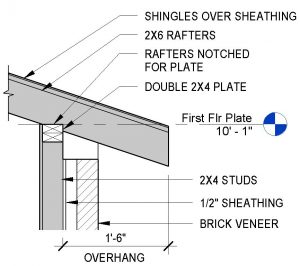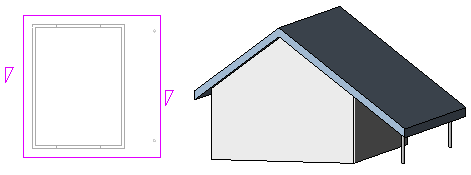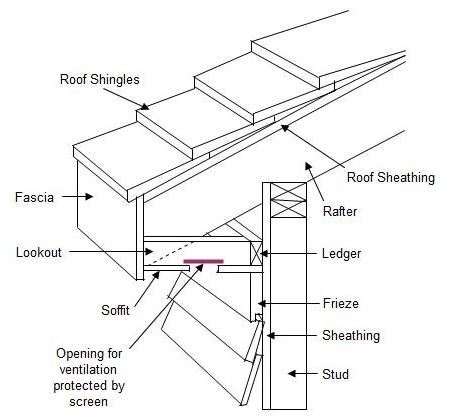How To Add Overhang To Roof In Revit

In the properties dialog box for the view you want to see the overhang lines in set the underlay drop down to be the level on which the roof was created.
How to add overhang to roof in revit. This tool is located in the modify tab. On the options bar for overhang enter 600 and select defines slope. Extend into wall to core. Create a sloped roof with an overhang.
Truss or rafter now that we have used our pick walls tool with a 2 0 overhang let s explore it s bearing point. 1 st floor no overhang. This post explores the effect of different types of wall finish materials on the overhang of the roof. In the drawing area highlight an entry wall.
On the draw panel click pick walls. Another option occurring in the roof properties is whether the roof is set to be a truss or rafter. Creates a roof using the building footprint to define its boundaries. When you create a roof in revit using the select walls tool in the options bar you will see an option with a checkbox see the left red colored arrow in the image below.
Extending a gable roof can be tricky since it involves working on the roof but you may be able to do it yourself if you only need to add 1 2 2 inches 1 3 5 1 cm. Click architecture tab roof drop down roof by footprint. Then follow these 2 steps. Open the 02 lower parapet floor plan.
Click architecture tabbuild panelroof drop down roof by footprint. Use join unjoin roof tool. If you choose not to move the roof to a different level revit notifies you later if the roof. To create a dormer model required walls and additional roof.
Use it to extend the dormer roof to the main roof. 9 join roofs add opening to create dormer. Display a floor plan view or a reflected ceiling plan view. If you try to add a roof on the lowest level a dialog prompts you to move it to a higher level.









































